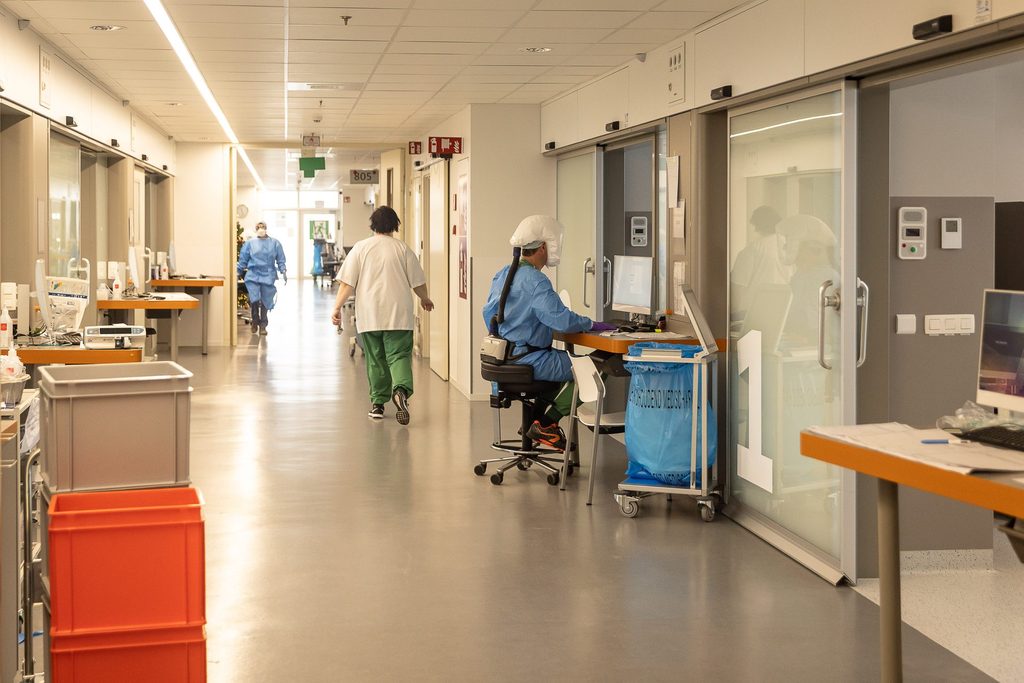As more and more Belgians faced with the economic crisis have to postpone their care or give it up altogether, a survey carried out by HelloSafe showed that Belgians pay 26.5% more in non-reimbursed health expenses than the EU average.
Of the average annual health expenditure of €3,773 per inhabitant in Belgium, only 81.2% is covered. This means there is a remaining cost of €687, making Belgium the seventh country in the EU where people have to pay the most out of pocket for their healthcare.
Additionally, hospital care is particularly poorly reimbursed, with an annual out-of-pocket cost of €204 per inhabitant, compared to only €35 in the rest of the EU. Concretely, Belgians pay 26.5% more in non-reimbursed health expenses than the average for EU countries.
"In comparison, our German (€4,520) and Dutch (€3,985) neighbours are doing better, while the Luxembourgers (€3,660) and the French (€3,590) are doing slightly worse than us," Alexandre Desoutter, spokesperson for HelloSafe Belgium, told La Capitale.
'Your rights at stake'
For the rest, Belgium does a little better than the EU on the reimbursement of medicines (€130 non-reimbursed compared to €151 in the EU), but less well in terms of dental care (€84 compared to €49 in the EU). According to the study, 8.2% of low-income Belgians were still unable to meet their dental needs in 2019, compared to just under 6% in the rest of the EU.
Currently, one in four people has given up care for financial reasons, according to the Solidaris health insurance. In partnership with the Présence et Action Culturelles movement, they are launching a campaign called 'BIM, your rights at stake' to raise awareness of the BIM status (for “Beneficiaries of Increased Intervention”), but also to highlight the different causes of non-recourse to rights and its consequences for citizens and for society as a whole.
They are doing this because some 300,000 people in Belgium are not benefiting from the rights of their BIM status, despite the fact that they are entitled. This is because the status is not always granted automatically; often, people have to submit a request to their health insurance fund to get it.
Related News
- Interest rates, meal vouchers and ID checks: What changes in Belgium on 1 December?
- Young people with eating disorders can get one-year reimbursement for dietician use
- Four in ten still do not receive psychological help despite reimbursement plan
The status grants people greater coverage of the reimbursement of health care by the mutuality (doctors, hospitals, medicines, among others) and allows them to benefit from certain social advantages, particularly in terms of mobility. Therefore, this additional protection makes it possible to fight against the renunciation of care, particularly among vulnerable populations – a system that is even more necessary in these times of economic crisis.
"It is a valuable lever when a person finds themselves in a financially fragile situation," said Solidaris. "Through this campaign, we are therefore calling for several demands. The first, increase the BIM revenue ceilings by 10%."
Additionally, the automation of granting BIM status must also be extended to more fluidly assign BIM status to people who meet the conditions. "Simplifying access to BIM and the opening of social rights in general must also be a priority, in particular by practising the only-once principle which makes it possible to avoid citizens and companies communicating the same data several times in the case of where these data have already been transmitted to another administration."

